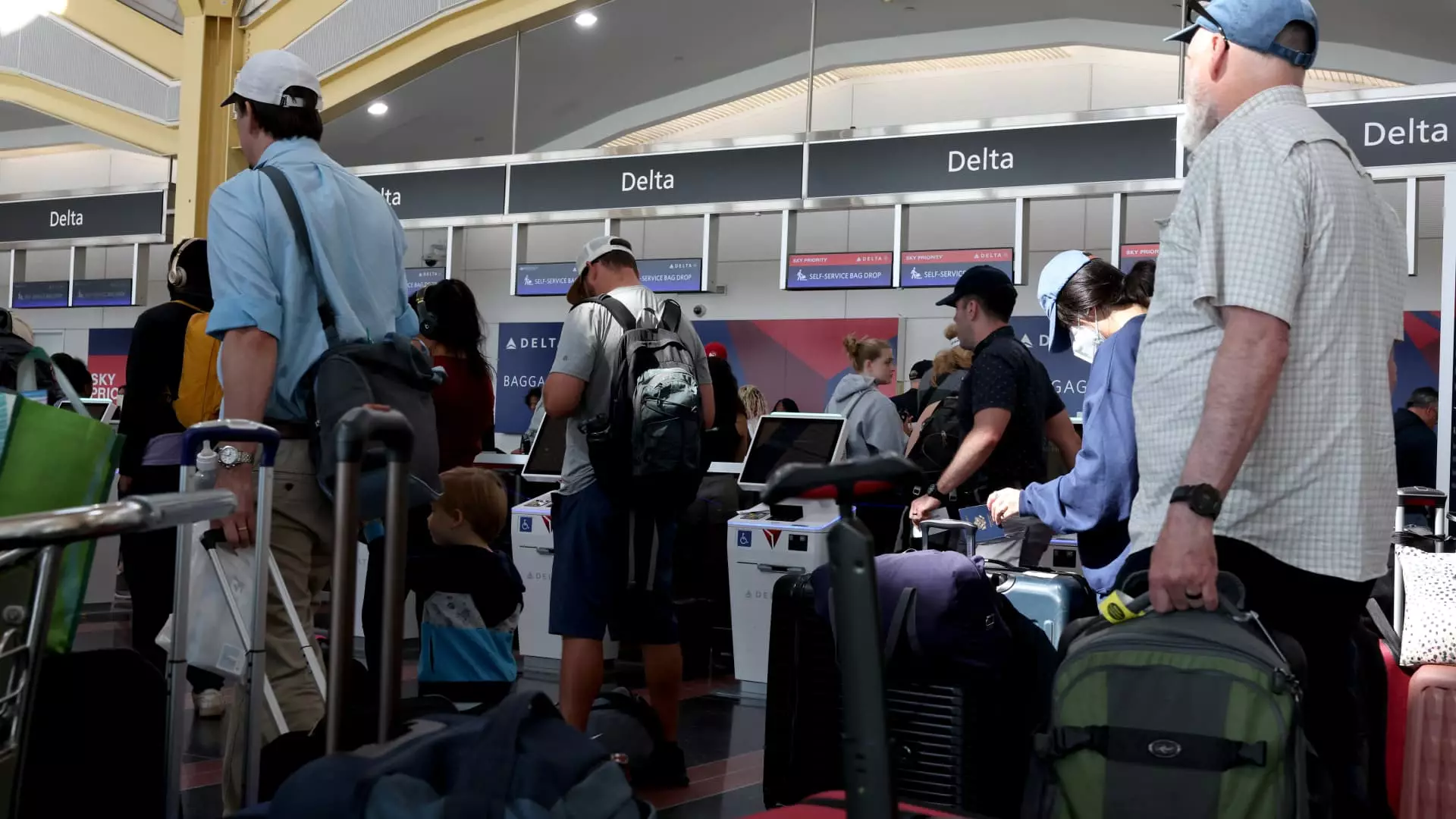The recent global IT outage that impacted major airlines such as United, Delta, and American Airlines has caused a significant disruption in operations, leading to widespread flight delays. The chaos that ensued as a result of the grounding of flights has left passengers stranded and frustrated. Eric Napoli, the chief legal officer at AirHelp, described the situation as a “mass chaos unfolding everywhere.” The bottleneck effect caused by the shutdown has had an incredible impact on numerous flights, creating a challenging situation for both airlines and passengers.
In the wake of flight disruptions caused by IT outages, passengers may be entitled to various forms of compensation. Depending on the airline’s policy, affected travelers could receive a refund, hotel accommodation, meal vouchers, or other forms of remuneration. However, the process of claiming compensation can be complex, with a gray area existing where passengers are at the mercy of the airline’s policies. Experts have highlighted the importance of distinguishing whether the outage constitutes an event within the airline’s control, as it influences the entitlement to financial compensation.
The U.S. Department of Transportation has specified that customers are owed a refund of the ticket price, including fees, if an airline cancels their flight, regardless of the reason. This refund policy applies even to non-refundable tickets, ensuring that passengers are reimbursed if they choose not to travel on an alternate flight. Additionally, customers are entitled to a refund for significant schedule changes or delays, subject to the discretion of the Department of Transportation. The definition of “significant” changes is determined based on various factors, including the length of delay and specific circumstances.
Impact of Airline Policy and Specific Situations
Due to a Biden administration rule scheduled to take effect on October 28, airlines will be required to promptly and automatically pay refunds to customers for significant itinerary changes. However, the rule does not assist customers affected by the recent IT outage, who may face challenges in claiming refunds. Customers who booked tickets through third-party sites rather than directly with the airline may encounter additional hurdles when seeking financial compensation. Specific airline policies come into play in determining the level of compensation and assistance provided to passengers in such situations.
Consumer Rights and Legal Obligations of Airlines
Airlines are obligated to adhere to the promises outlined by the Transportation Department for cancellations or delays lasting longer than three hours. These commitments include rebooking passengers on the same or partner airlines, providing meals, and offering hotel stays for extended delays or cancellations. However, airlines’ obligations apply only to circumstances within their control, such as maintenance issues or crew problems. Weather-related disruptions or uncontrollable events pose a greater challenge for consumers seeking compensation.
The complexity of determining accountability for the IT outage lies in the relationship between airlines and their vendors. While airlines choose their vendors, the failure of a vendor could be perceived as within the airline’s control. Passengers are advised to keep receipts for unexpected costs incurred during delays or cancellations, as these documents serve as proof when filing claims with airlines or travel insurers. Being proactive in documenting expenses can increase the chances of receiving compensation for incurred costs.
The recent IT outage experienced by major airlines underscores the importance of understanding passenger rights and airline obligations. While navigating the complexities of claiming compensation for flight disruptions can be challenging, passengers are encouraged to familiarize themselves with airline policies and seek assistance when necessary to ensure a smooth resolution to travel-related issues.

